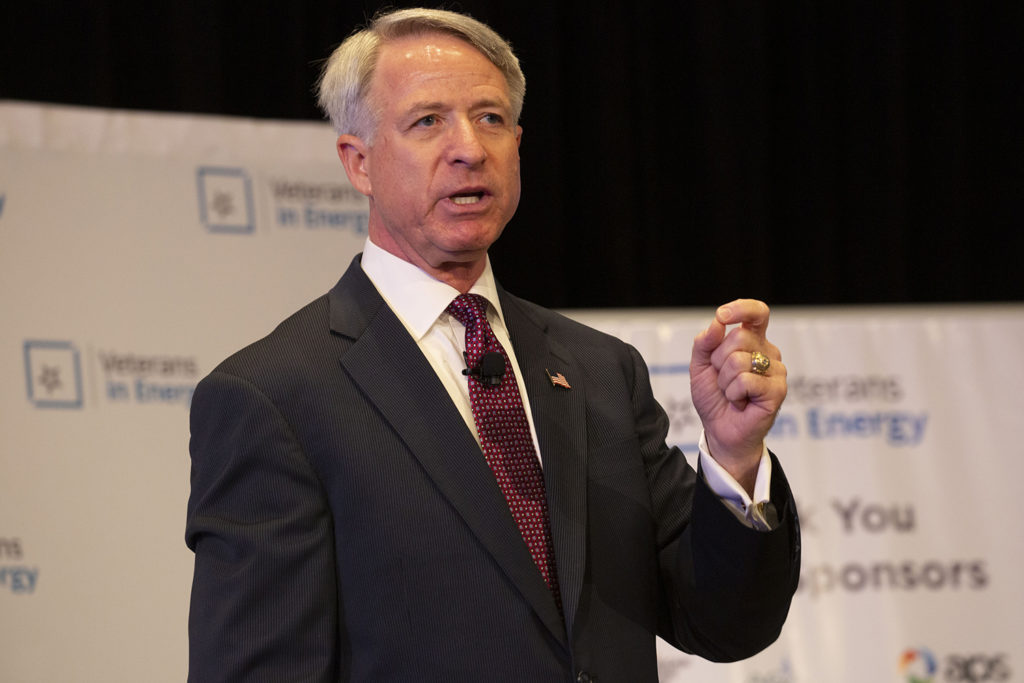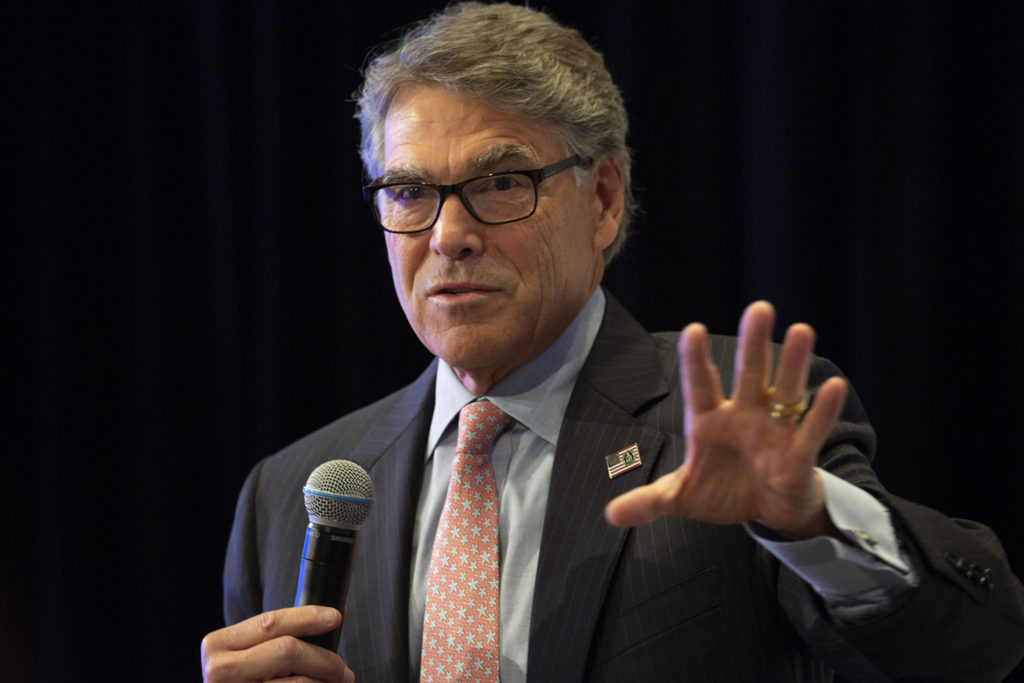
A suicide terrorist’s bomb ripped a 40-by-60-foot hole in the hull of the USS Cole. Seventeen sailors were killed, and dozens more lay wounded. Survivors could feel the ship sinking.
“It was if a giant had taken his fist, punched it in the side, moved around and pulled it back out again,” retired Navy Cmdr. Kirk Lippold told the Veterans in Energy forum during his closing keynote speech Sept. 13 in Washington, D.C.
Amid that scene of destruction on that terrible day in Yemen, Lippold and his crew had to somehow focus on saving the ship. They got to work, attending to medical triage, extinguishing fires and de-flooding large spaces within the ship.
Preparation for that moment on Oct. 12, 2000, had begun months earlier when crews were readying the USS Cole in its home port of Norfolk, Virginia.
“I took every one of my crew members and began to build a future for our Navy by creating that foundation of leadership in each and every single one of them that allowed them, in that defining moment, to do what was necessary to save the USS Cole,” Lippold said.
While the attack on the USS Cole is an extreme example of soldiers’ skills being put to the test, Lippold’s remarks at the forum underscored how military discipline and work ethic make veterans prized employees in the energy sector.
NRECA is a founding sponsor of Veterans in Energy, a national organization formed to provide transition, retention and professional development support to the growing population of military veterans choosing careers in energy. VIE hosts an annual forum; the next two will also be in the Washington, D.C., area.

About 40% of employees at the U.S. Energy Department are veterans, said Energy Secretary Rick Perry during his keynote address. “If there’s one group as organized as the U.S. military, it’s the electric subsector,” said Perry, himself an Air Force veteran. “They are really good at what they do.”
Yet conference participants agreed more networking, mentoring and other resources must be provided to keep veterans in the energy industry.
Workplace challenges include developing a clear path for career advancement, translating military jargon into civilian-friendly résumés and forming “employee resource groups” that support veterans and their families.
“Employee resource groups, or affinity groups, have been one of the biggest drivers of our success, because they help bring more veterans into the conversation,” said John McAvoy, chairman and CEO of Consolidated Edison.
Organizers of NRECA’s veterans hiring initiative, Serve our Co-ops; Serve Our Country, are working to improve hiring coordination among co-ops and enlisting employees with military backgrounds to help with recruitment.
“One of the things that we hear over and over again is if you get the veterans at your co-op engaged in veteran hiring, you’re far more successful,” said Michele Rinn, NRECA’s senior vice president for human resources. “They can reach out within their own networks to be a champion and a representative for veterans.”
Perry said the increasingly complex needs of the energy sector are a great fit for the skills of military veterans, noting the Energy Department’s new artificial intelligence office, cybersecurity challenges and advances in nuclear energy.
“The world has been turned on its head in the energy sector. I don’t think there’s ever been a time that there was more opportunity,” Perry said.
Victoria A. Rocha is a staff writer at NRECA.